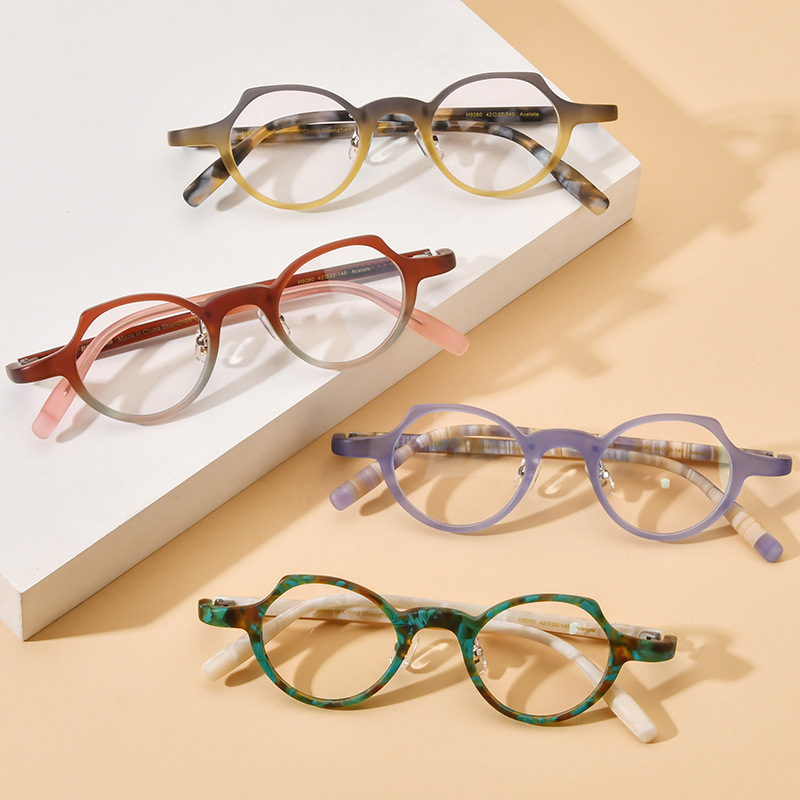How to wear the right glasses correctly
Correct vision and protect the eyes: for people with refractive errors (such as myopia, farsightedness, astigmatism), long-term wear of the appropriate degree of optical glasses can help the eyes to clearly image, so that the eyes are in a normal physiological state when seeing, help to reduce the adjustment burden of the eyes, to avoid blurred vision caused by eye fatigue, dryness and other problems, so as to protect the eyes. For example, after myopia patients wear suitable myopia glasses, the eyes do not need to over-adjust when looking at distant objects, which can effectively prevent eye fatigue and reduce the risk of further deepening myopia.

Normal development and maintenance of visual function: In children and adolescents, the eyes are in the stage of growth and development, if there are refractive errors, timely wear of appropriate optical glasses for the normal development of visual function is crucial. For example, children with congenital hyperopia, if they do not wear glasses in time to correct, it may affect the normal imaging of the retina, and then affect the development of the visual center, resulting in amblyopia and other problems. Long-term wearing of suitable glasses can ensure that the retina can receive clear images, promote the normal development of the visual system, and maintain good visual function.
Improper wearing or improper glasses
The degree is not accurate: if the glasses are too high or too low, the eyes will be in an abnormal adjustment state. Excessive degree will make the eyes overadjust, easy to cause eye fatigue, swelling, pain and other symptoms, long-term so may lead to the deepening of myopia degree; If the degree is too low, it can not effectively correct vision, and the eyes still need to over-adjust to see things, which will also cause visual fatigue and is not conducive to the stability of vision.
Inaccurate pupil distance: Pupil distance is one of the important parameters of lens matching. If the pupil distance of the glasses does not match the actual pupil distance of the wearer, the prism effect will occur when the eyes see, causing uncomfortable symptoms such as double vision and dizziness. Long-term wearing may affect the adjustment and assembly function of the eyes, resulting in strabismus and other problems.
Lens quality problems: poor quality lenses may have poor optical performance, uneven surface, scratches and other problems, which will affect the normal transmission of light and imaging quality, so that the eyes see things blurred, deformed, increase the burden of the eyes, long-term wear may cause damage to the eyes.
Poor wearing habits: wearing glasses continuously for a long time without rest, or wearing glasses with incorrect posture, such as glasses often slide down, the mirror leg is too tight or too loose, etc., may also cause pressure on the skin and orbit around the eyes, affect local blood circulation, lead to discomfort around the eyes, and may even affect the normal physiological function of the eyes.
Post time: Mar-05-2025